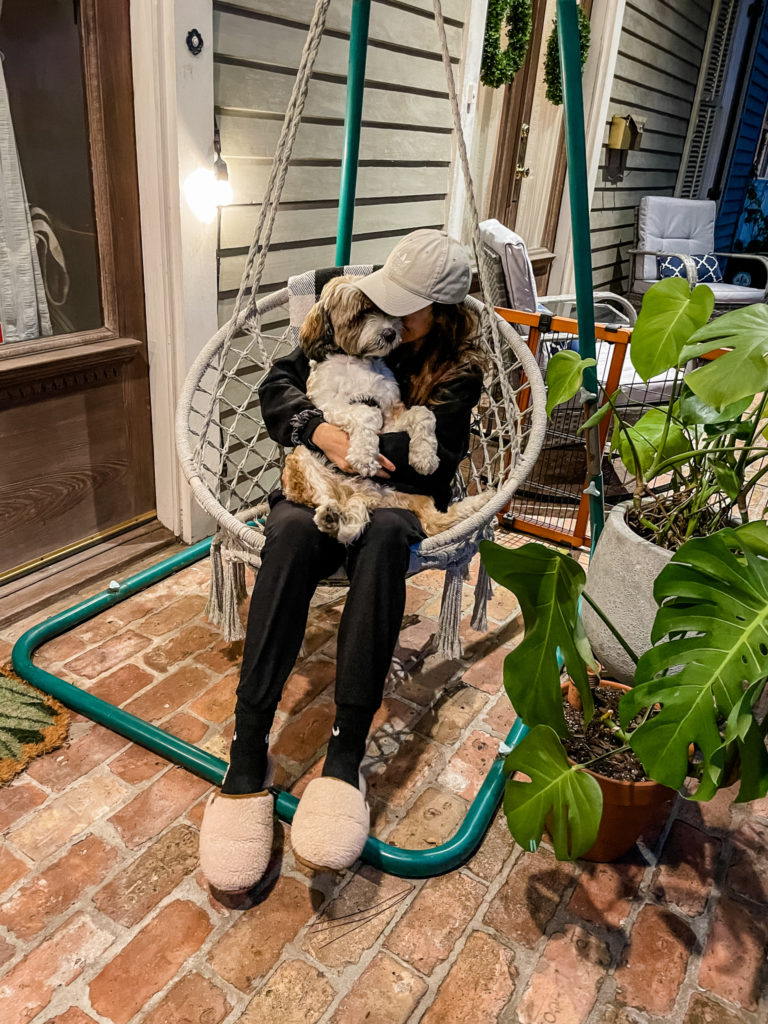How Chronic Illness Taught Me to Apologize Less Often, With More Meaning
Staring at the title of this article, I can connect on a soul level to the guilt-ridden, past version of myself who would have clicked it immediately to read.
For years, I was stuck in a pattern of chronic apologizing. It was almost automatic and completely counterproductive to the kind, clear communication I wanted to cultivate in my relationships. Not only that, but this reflexive over-apology habit deeply distorted my self-perception, worth, and value.
I used to view my frequent apologies as acts of kindness; verbal, living proof of the good heart and conscience within me. When I saw someone hurting, I said “I’m sorry”. When I asked for something I needed, I prefaced it with, “I’m so sorry to bother you”. When I drew any kind of boundary that might inconvenience or upset another person, “I’m sorry”, wove its way repeatedly into the conversation, every single time.

In a genuine effort to show the people I love just how much I care about them, I can look back now and see that I was in a habit of massively overcorrecting when it came to how I was using apologies. Without even realizing it, I was stuck in a continuous loop of apologizing left and right in situations where an “I’m sorry” was both unwarranted and often implied wrongful self-blame for things out of my control.
In my mid-twenties, when I started to deal with daily debilitating pain as a result of several chronic health conditions, I was forced to come face to face with my over-apologizing habit in a new way. It became very clear, very quickly, that my waterfall of “I’m sorry’s” were not strengthening my relationships, as I intended them to.
The day-to-day nature of my symptoms escalated until the point where debilitating pain was resulting in near-daily disappointments and let-downs; both for myself and others. I was having to ask for more help than ever before, and my ability to “show up” for the people I loved in the way I was used to was dramatically reduced.
As I continued along, practicing the “I’m sorry” pattern I had always known, I found myself stuck in a cycle of apologizing multiple times a day, every day, to everyone, for what felt like simply existing.
I began to notice that the more I apologized, the less weight the words seemed to carry.
Not only did my overly frequent apologies feel like they were losing some of their authenticity as they were spilled out of my mouth every other minute, but they also created a paradigm where I lived with a woefully inaccurate perception of self-blame for circumstances outside of my control.
I realized that if I kept apologizing for the way chronic illness was limiting my ability to show up as the friend, daughter, sister, partner, or employee I wanted to be; I was teaching the people around me that I felt at “fault” for living with a debilitating health condition.
Although I was (and still am!) genuinely saddened and disappointed about the ways in which my health conditions can limit my activities — I understand the important distinction between experiencing emotions about my health issues and knowing that I am not personally responsible for the fact that they are happening.
To reprogram my mind and release personal responsibility for things outside of my control, I had a list on my refrigerator for years to help me introduce new language where I’d normally insert an “I’m sorry” in my everyday conversations.
My list of “I’m Sorry Swaps”, served as reminders that I can be sad, disappointed, frustrated, or deflated about something — without being personally sorry for “causing” it. This is especially true in the situation where I am impacted by pain caused by my chronic health issues.
Here are some examples of “I’m Sorry Swaps” I use while communicating with loved ones:
The “sorry”: I’m so sorry to cancel, I’m not going to be able to keep our appointment today. I’m in too much pain to drive and feel terrible. I’m really really sorry.
The “swap”: It breaks my heart to have to cancel, but I need to reschedule our appointment for today. I’m in the middle of a migraine attack and unable to get out of bed, let alone attempt to leave the house and drive. I would push through if I could and thank you in advance for your understanding.
The “sorry”: I know we talked about you coming over for dinner tonight. I’m so, so sorry, but it won’t work for me. I feel like the worst. I hope I can see you soon.
The “swap”: I know we talked about you coming over for dinner tonight, but unfortunately, my body is not cooperating and I’m in a lot of pain. I am so bummed to have to cancel and really hope we can reschedule soon. I love you and miss you.
The “sorry”: I’m so sorry but I can’t come to your birthday dinner. I feel like such a bad friend! I really cannot go to restaurants right now with my symptoms. So sorry to miss your special day.
The “swap”: I would absolutely love to spend some time with you to celebrate your birthday! Restaurants are really not feasible for me symptom-wise right now, even on my best days. Do you want to come over this weekend and we can have tea and you can tell me all about it? Wish I could just say yes without a second thought! You’re so important to me and I’d be there in a heartbeat if I could.
The “sorry”: I’m sorry I didn’t text you back last night, I was in a bad migraine flare. I feel so bad I didn’t reply!
The “swap”: Hi! I got sucked into the migraine hole last night but am feeling a little clearer today. How are you today? What is going on? Thank you for always getting it when I “go dark” from high pain.
This list could go on and on, but I think you get the idea! And if you are also an over-apologizer (or are in recovery from the habit of doing so), then I’m sure you can imagine pages worth of scenarios just like these where your first instinct would be to jump into an apology to smooth things over and “show” other people how much you care.

The silver lining of learning to apologize less often has been that when I do apologize, it carries much more weight and authenticity. Through mindfulness and countless hours of personal development work, I’ve cultivated a deep level of self-awareness that allows me to take more responsibility for my actions and communicate with more clarity and sincerity when I act in a way that I genuinely feel the need to apologize for.
I’ve learned to practice the art of replacing my knee-jerk “I’m sorry” with a thoughtful “thank you”. This new behavior has strengthened nearly all of my relationships, including the one I have with myself. Instead of saying, “I’m so sorry I have to cancel today”, I try to remember to say, “Unfortunately I have to cancel today, thank you so much for being understanding”; which opens the door for others to respond with more kindness and compassion to whatever challenge I’m facing.
This process is ever-evolving, and in my lifelong personal growth journey, I’m sure I will continue to discover new ways of communicating that better reflect my authentic self and help to fortify my relationships.
I hope that if you’re a chronic apologizer, this will give you a nudge of encouragement to reconsider some of your “I’m sorrys”. What might feel “selfish” or “mean” at first, will actually create a pathway to expanding kindness and compassion in your world. It may feel uncomfortable in the beginning, but I hope that it will bring you an added measure of tranquility, as it has for me, once you get the hang of it.
All my love,
Natalie
February 2, 2022
Meet Natalie
I share each step along my road to wellness and healing and hope that in doing so I can inspire you along your own path. Thank you so much for being here.